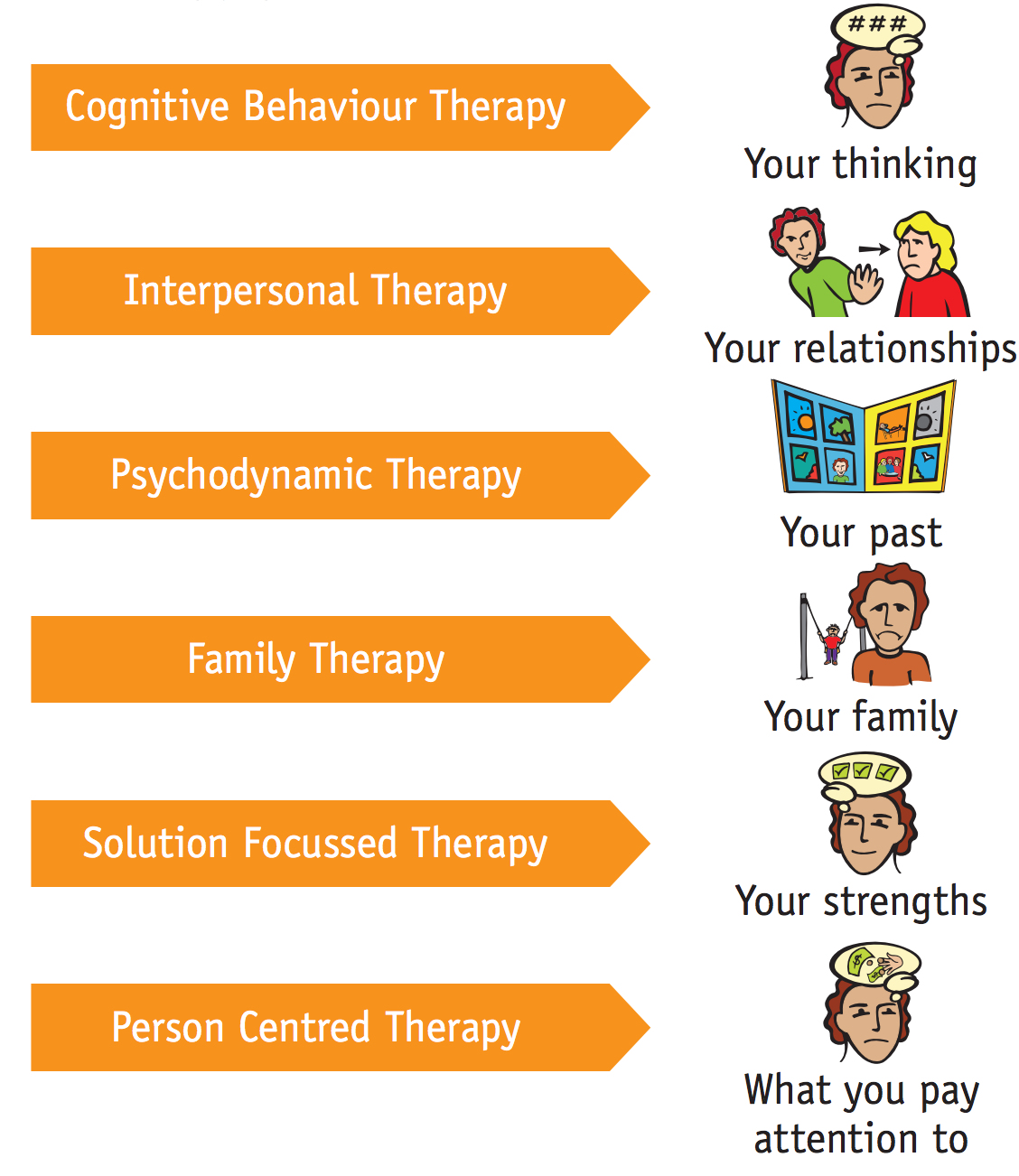relationship therapy: Proven Tips for Managing Conflict
Wiki Article
Exploring the Benefits of Virtual Therapy in Modern Mental Healthcare
The rise of virtual therapy notes a substantial change in psychological wellness care. It provides enhanced accessibility, allowing people from varied backgrounds to look for assistance without geographical restrictions. Flexibility in organizing accommodates differing way of lives, while the convenience of home can cultivate openness. The implications of these modifications extend beyond mere ease. The advancing landscape of therapy raises essential inquiries concerning its long-term impacts on person involvement and therapy results.Boosted Ease of access for All
Standard therapy frequently provides barriers such as geographical area and scheduling disputes, virtual therapy substantially improves availability for individuals looking for mental health and wellness assistance. By eliminating the need for physical travel, virtual therapy allows customers from remote locations or those with mobility difficulties to get in touch with certified experts. This mode of therapy can reach underserved populations that might lack regional psychological health resources, consequently resolving disparities in accessibility to care. Additionally, virtual platforms can provide to varied demands, offering solutions in multiple languages and accommodating various cultural histories. Clients can involve with a wider range of specialists, supplying them with alternatives that straighten with their details needs and preferences. This raised availability cultivates an extra comprehensive environment, enabling individuals to look for assistance without the stigma usually connected with in-person gos to. In general, virtual therapy represents a significant improvement in making psychological healthcare much more obtainable to all.Versatility in Organizing Procedure

As virtual therapy continues to obtain traction, its fundamental versatility in organizing sessions verifies to be a substantial advantage for numerous people. Unlike standard in-person therapy, virtual therapy allows customers to choose session times that best fit their personal and specialist commitments. This adaptability accommodates those with requiring work schedules, family members obligations, or various other dedications that can make attending physical visits testing.
In addition, customers can easily reschedule or readjust their sessions as required, minimizing the tension related to stiff consultation systems. The availability of different time ports throughout the week, consisting of nights and weekends, better boosts accessibility. This flexibility not only encourages consistency present but also promotes a greater dedication to the restorative procedure. Inevitably, the adaptability in scheduling sessions stands for a transformative shift in psychological healthcare, encouraging people to prioritize their health without giving up other facets of their lives.
Comfort of a Familiar Environment
The comfort of a familiar environment considerably improves the efficiency of virtual therapy for several clients. Taking part in therapy from the safety of their own homes enables individuals to feel more secure, reducing anxiety that may come with conventional in-person sessions. This familiarity can help with open interaction, enabling customers to express their ideas and sensations much more openly.Moreover, the existence of individual products and the capacity to control their environments can contribute to a complacency and leisure. Clients commonly report that remaining in a comfy room enables them to concentrate more on the therapeutic procedure as opposed to the setting itself.
In addition, the informal nature of virtual sessions can aid liquify barriers that might exist in a conventional office atmosphere, cultivating a deeper link with therapists. In general, the comfort of acquainted environments plays an important duty in boosting the therapeutic experience and effectiveness for several individuals seeking psychological health support.
Broader Series Of Therapeutic Alternatives
A bigger series of healing options ends up being offered via virtual therapy, allowing customers to accessibility different methods that may not be feasible in conventional settings. This adaptability makes it possible for people to discover diverse strategies such as cognitive-behavioral therapy, mindfulness practices, art therapy, and even specialized interventions like trauma-informed treatment or dialectical actions therapy.Additionally, customers can select from a more comprehensive range of specialists, consisting of those that specialize in specific niche locations or details populaces, enhancing the likelihood of finding an appropriate suit. Virtual systems commonly supply accessibility to team therapy sessions, support neighborhoods, and workshops that might be geographically inaccessible otherwise.
This variety encourages clients to participate in their healing procedure according to their one-of-a-kind choices and demands, possibly raising inspiration and commitment to therapy. Because of this, the landscape of psychological healthcare comes to be a lot more inclusive and versatile, satisfying a wider range of individual experiences and obstacles.
Reduced Stigma Bordering Therapy
Accessing therapy through virtual systems contributes to a considerable reduction in the preconception generally connected with psychological healthcare. By providing a very discreet and private setting, virtual therapy allows individuals to look for help without the fear of being judged or determined. This anonymity attract those that might otherwise think twice to pursue in-person therapy as a result of societal perceptions surrounding mental wellness.As the prevalence of virtual therapy boosts, it normalizes the discussion around mental health, making it an extra appropriate part of day-to-day life. People usually really feel more comfy reviewing their experiences online, advertising visibility and minimizing sensations of seclusion. The availability of these services additionally encourages a wider demographic to engage with mental health sources, promoting a culture of assistance instead of shame. Inevitably, the surge of virtual therapy plays a vital function in reshaping attitudes towards looking for aid, adding to a more approving culture pertaining to psychological wellness obstacles.
Cost-Effectiveness and Affordability

Reduced Session Prices
Numerous individuals seeking mental wellness support locate that virtual therapy considerably reduces session prices compared to typical in-person choices. The removal of travel expenditures and pause work typically contributes to overall cost savings. In addition, many virtual specialists use competitive prices due to reduced above expenses connected with preserving a physical workplace. This shift in expenditure enables customers to accessibility top quality mental wellness solutions without the monetary strain that might come with traditional therapy. For several, this cost makes it possible for a lot more constant sessions, which can enhance therapy results. As an outcome, virtual therapy not just equalizes access to mental wellness treatment however also supplies a lasting monetary model that straightens with clients' spending plans, making psychological health assistance more achievable for a broader audience.Expanded Access Choices
While standard therapy frequently provides logistical barriers, virtual therapy significantly increases gain access to choices for individuals looking for mental healthcare. By eliminating the requirement for traveling and permitting flexible scheduling, virtual therapy fits varied way of livings and dedications. This access is specifically advantageous for those in remote locations or with movement difficulties. Additionally, the cost-effectiveness of virtual therapy minimizes monetary stress, making psychological health and wellness services a lot more reachable. Lots of platforms offer tiered rates or sliding scale fees, advertising cost. Insurance policy firms progressively identify virtual therapy, more boosting its financial accessibility. Overall, virtual therapy not only broadens the range of who can receive care but likewise addresses financial barriers, making psychological health support much more inclusive and attainable for all.Enhanced Connection of Care
Boosted continuity of treatment emerges as a significant advantage of virtual therapy in modern-day psychological healthcare. This method allows individuals to maintain consistent interaction with their specialists, no matter geographical obstacles or organizing conflicts. adhd counselling. The versatility of virtual sessions cultivates normal check-ins, which are important for keeping track of progress and adjusting therapy intends as essentialIn addition, electronic health documents and telehealth systems assist in smooth information sharing among treatment suppliers. This interconnectedness ensures that all experts included in a client's care are upgraded on treatment advancements, bring about even more collaborated and efficient interventions.
Individuals often experience lowered stress and anxiety and boosted engagement because of the convenience of accessing therapy from familiar atmospheres. Such availability boosts adherence to therapy routines, ultimately improving results - low cost therapy. To summarize, virtual therapy not only bridges spaces in mental health and wellness services however additionally fortifies the connection of care, an essential element of effective healing partnerships
Frequently Asked Inquiries
Exactly How Does Virtual Therapy Guarantee Confidentiality and Privacy for Clients?
The existing question addresses the actions virtual therapy utilizes to shield customer privacy. Using encrypted platforms, protected logins, and compliance with policies like HIPAA, virtual therapy assurances that delicate info stays personal and inaccessible to unapproved individuals.Can I Change Therapists Conveniently in Virtual Therapy?
Switching over specialists in virtual therapy is generally simple. Customers can interact their desire for a modification with the system, permitting flexibility in discovering a far better suit without the logistical challenges of in-person visits.What Modern technology Do I Required for Virtual Therapy Sessions?
To participate in virtual therapy sessions, a private normally requires a reliable net link, a computer or smart device with a cam and microphone, and accessibility to a safe and secure video clip conferencing system defined by their therapist.
Are Virtual Therapy Sessions as Effective as In-Person Sessions?
Current researches indicate that virtual therapy sessions can be equally effective as virtual therapy in-person sessions, depending upon the person's choices and circumstances. Variables such as comfort and access might improve the total therapeutic experience for some clients.What Should I Do if I Experience Technical Issues During a Session?
If technical concerns occur throughout a session, one should calmly connect the issue to the specialist, attempt to reconnect, or switch to a back-up method. Persistence and versatility are necessary in handling these disturbances.Report this wiki page